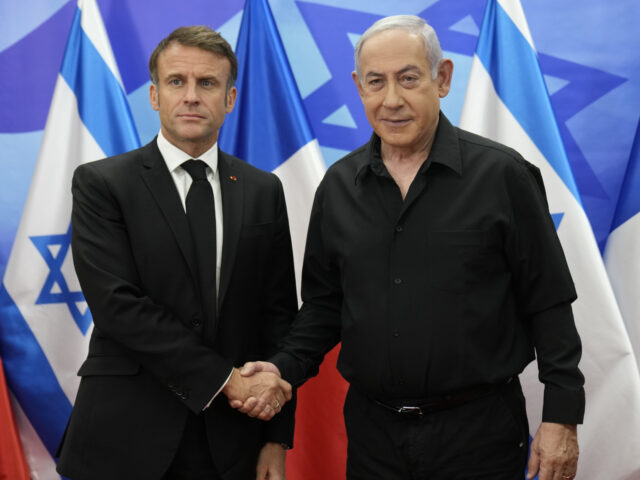France has stated it recognises that, legally, Benjamin Netanyahu and Israeli government ministers are not subject to the rulings of the International Criminal Court and consequently accept they have “immunities” from the arrest warrant issued.
The International Criminal Court (ICC) issued arrest warrants for Israeli Prime Minister Benjamin Netanyahu and former Israeli Minister of Defense Yoav Gallant for supposed war crimes committed in Gaza last week. The decision to issue the warrant contradicted legal advice received by the court that it actually had no jurisdiction to issue a warrant, and prompted awkward responses from Western nations on how they would interpret the law and if they would arrest the democratically elected head of government of an allied state.
The government of French President Emmanuel Macron has been locking horns with Israel more often in recent months and had previously indicated it would respect the ruling of the court. Its statement immediately after the arrest warrant was issued last week felt deliberately vague, stating only that: “True to its long-standing commitment to supporting international justice, it reiterates its attachment to the independent work of the court”.
Yet France has now shifted to a new position, publishing a diplomatic communication on Thursday stating that the nation respects its international obligations, both to the International Criminal Court of which it is a member nation, but also towards third party nations which aren’t members, like Israel.
The French government asserted: “a State cannot be required to act in a manner inconsistent with its obligations under international law with respect to the immunities of States not party to the ICC. Such immunities apply to Prime Minister Netanyahu and other relevant ministers and will need to be taken into consideration should the ICC request their arrest and surrender.”
The communication hailed the historic friendship between the two nations and their bond as “two democracies committed to the rule of law”.
This move has been strongly criticised by the political left within France, for whom in many cases Israel and Netanyahu are seen as war criminals. Leader of the French Greens Marine Tondelier called the statement a “disgrace” and accused the government of siding with Benjamin Netanyahu over “international justice”.
Tondelier also asserted that by the logic of the decision, France would refuse to arrest President Vladimir Putin as well, given the chance, given Russia is also not a signatory of the treaties creating the International Criminal Court. She called France’s position a “Historical error, very very serious. We are sweeping away international justice and the multilateral system that we have patiently built up over decades. But also, quite simply, what international credibility we have left. It’s tragic.”
The French interpretation of the law closely echoes the one put forward by the British government until a change in leadership in June with the general election saw Rishi Sunak’s Conservatives replaced with Keir Starmer’s Labour, which despite major work in recent years to move past its antisemitic past is still decidedly cooler towards Israel.
The United Kingdom had submitted a legal brief to the ICC that pointed out as Israel is not a member of the ICC, and under the Oslo Accords of 1993 the court does not have jurisdiction over Israeli military matters. The ICC decided it did in fact have this competency in 2021, but the British submission demurred from this point and the government objected to issuing an arrest warrant for Netanyahu in general.
This position reversed with the new Labour government, however, which withdrew that brief in July. Since the warrant was issued, the new British government has been evasive on whether it would try to arrest the Israeli Prime Minister, appearing to try to avoid an awkward question it would rather not answer.
Other countries have been less circumspect, however, from both sides of the question. While long-time Israel and Netanyahu ally Viktor Orban of Hungary was quick to assert his friend remained welcome in Budapest any time, Canada’s Justin Trudeau bowed to the ICC, saying “We stand up for international law, and we will abide by all the regulations and rulings of the international courts. This is just who we are as Canadians.”

COMMENTS
Please let us know if you're having issues with commenting.